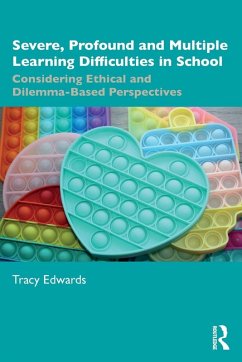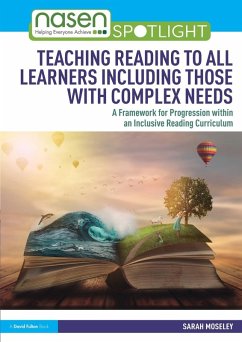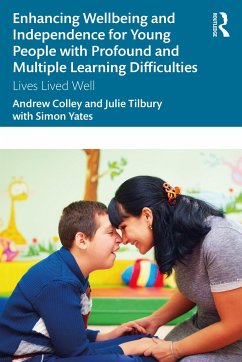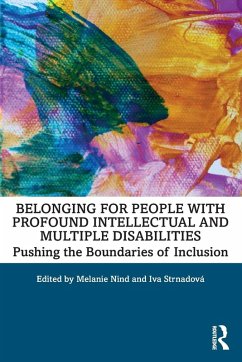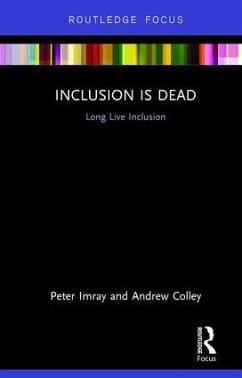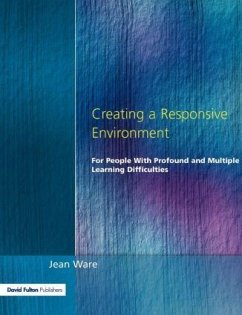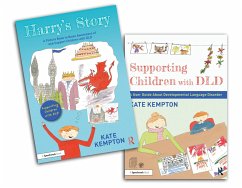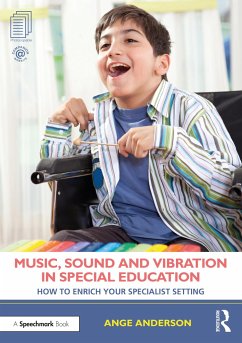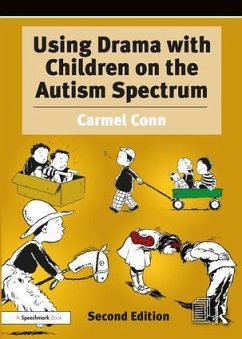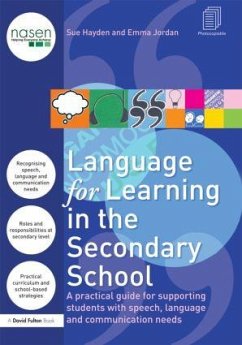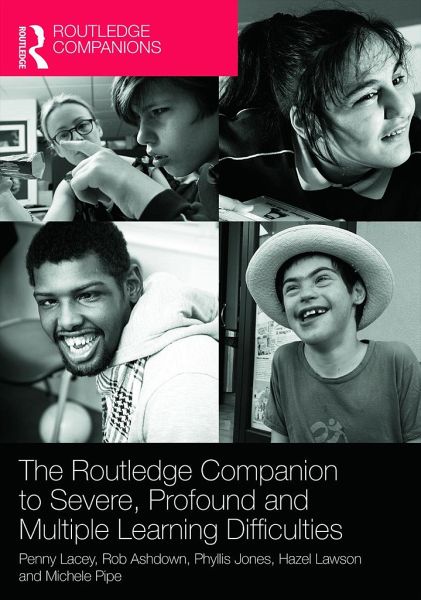
The Routledge Companion to Severe, Profound and Multiple Learning Difficulties
Versandkostenfrei!
Versandfertig in 1-2 Wochen
79,99 €
inkl. MwSt.
Weitere Ausgaben:

PAYBACK Punkte
40 °P sammeln!
The Routledge Companion to Severe, Profound and Multiple Learning Difficulties is a timely and rich resource with contributions from writing teams of acknowledged experts providing a balance of both academic and practitioner perspectives. The book covers a myriad of topics and themes and has the core purpose of informing and supporting everyone who is interested in improving the quality of education and support for children and young adults with severe, profound and multiple learning difficulties and their families. Each chapter contains careful presentations and analyses of the findings from ...
The Routledge Companion to Severe, Profound and Multiple Learning Difficulties is a timely and rich resource with contributions from writing teams of acknowledged experts providing a balance of both academic and practitioner perspectives. The book covers a myriad of topics and themes and has the core purpose of informing and supporting everyone who is interested in improving the quality of education and support for children and young adults with severe, profound and multiple learning difficulties and their families. Each chapter contains careful presentations and analyses of the findings from influential research and its practical applications and the book is a treasure chest of experiences, suggestions and ideas from practitioners that will be invaluable for many years to come. The chapters include many vignettes gathered from practitioners in the field and are written specifically to be rigorous yet accessible. The contributors cover topics related to the rights and needs of children and young adults from 0-25 years, crucial features of high quality education, characteristics of integrated provision and effective and sensitive working with families to ensure the best possible outcomes for their children. Crucially, the voice of the learners themselves shines through. Historical provision that has had an impact on developing services and modern legislation aimed at improving provision and services are also discussed. The contributed chapters are organised into six themed parts: Provision for learners with SLD/PMLD. Involving stakeholders. Priorities for meeting the personal and social needs of learners. Developing the curriculum. Strategies for supporting teaching and learning. Towards a new understanding of education for learners with SLD/PMLD. This text is an essential read for students on courses and staff working in and with the whole range of educational settings catering for children and young adults with severe, profound and multiple learning difficulties, not just for teachers but also for support staff, speech and language therapists, physiotherapists, psychologists, nurses, social workers and other specialists.





